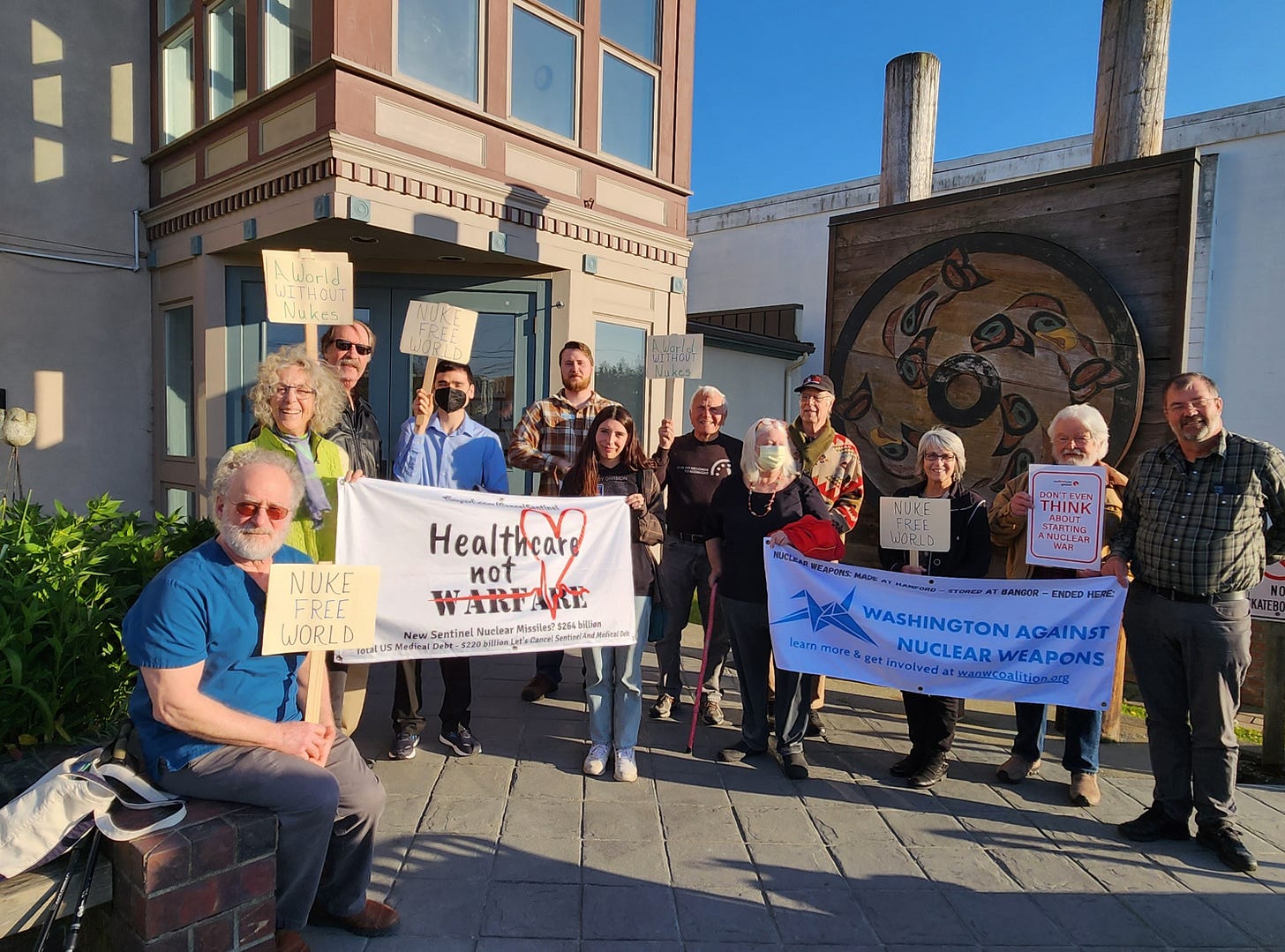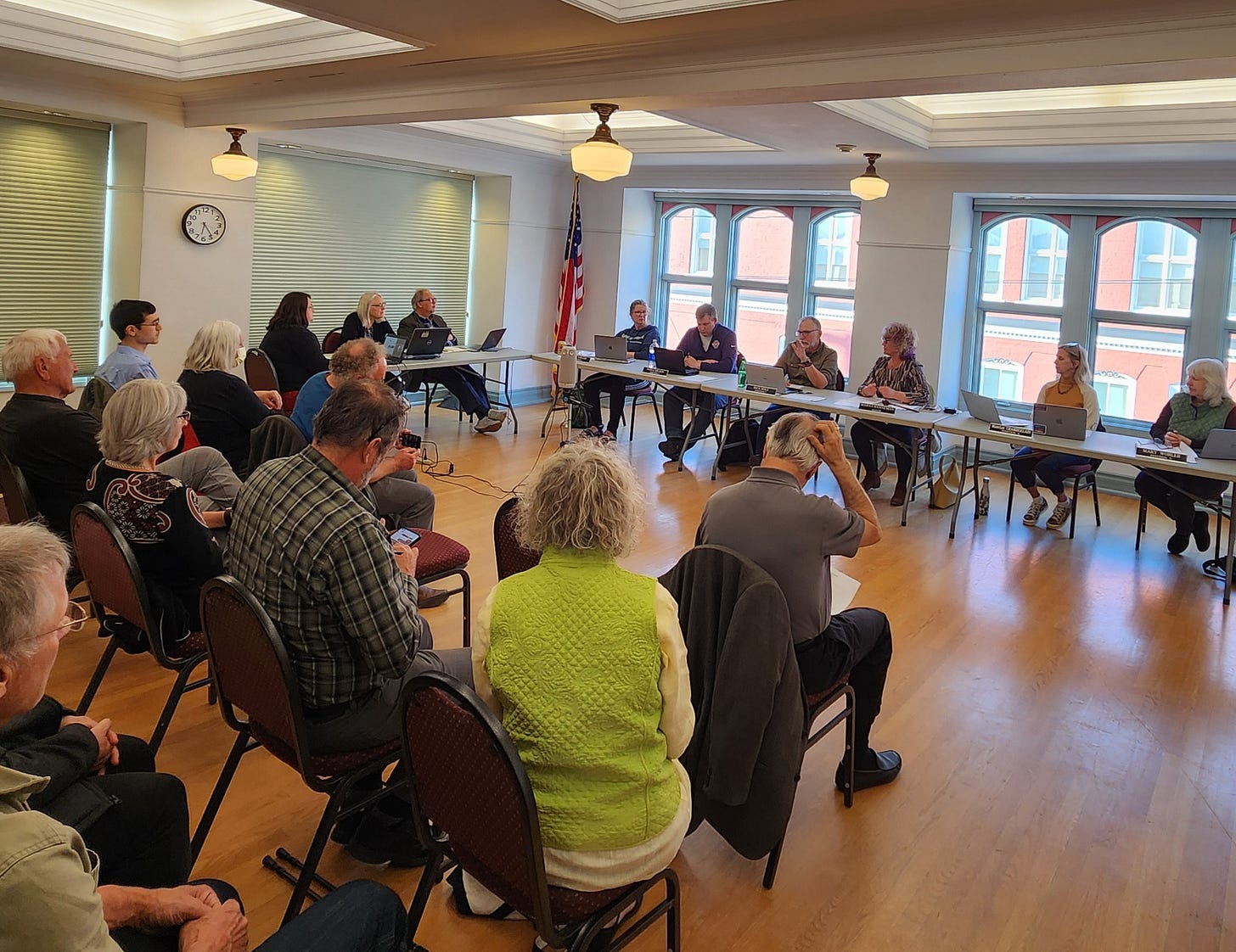Enough's Enough in Magic Skagit
A small little town, empowered to do the right thing.
Earlier this month, U.S. Representative James McGovern of Massachusetts reintroduced House Res. 317, calling on the United States to resume negotiations on nuclear disarmament and spearhead a global initiative to reduce and eliminate nuclear weapons.
According to GovTrack, McGovern’s resolution is unlikely to be agreed to by the House Armed Services and Foreign Affairs committees. Despite its low chances, it remains a central piece of legislation for Back from the Brink, a US-based grassroots coalition of individuals, organizations and elected officials working together toward a world free of nuclear weapons and advocating for common sense nuclear weapons policies to secure a safer, more just future.

On April 22, with nuclear powers trigger-loaded for confrontation in the Middle East and Eastern Europe, La Connor, Washington became the first municipality in the state to join 86 other towns and cities in the U.S. to formally recognize the global nuclear threat and adopt a Back from the Brink resolution (read on page 36 of the April 22 Town Council Packet), endorsed and promoted by the local group No More Bombs.
La Conner, in Skagit (pronounced like “Magic”) County, has been a Nuclear Free Zone since 1985, so designated by ordinance at the height of the Nuclear Freeze Movement, thanks to a grassroots effort by Skagit Citizens for Nuclear Disarmament, with 62% voter approval.
The Back from the Brink initiative is a national campaign aimed at garnering public support for the 2017 Nobel Prize-winning UN Treaty on the Prohibition of Nuclear Weapons. The campaign seeks to “effect a significant shift in the United States nuclear policy from reliance on nuclear deterrence to an understanding that true security necessitates the elimination of nuclear weapons.” Drawing inspiration from the 1984 nuclear freeze referendums conducted in Skagit and neighboring Whatcom (Bellingham) counties, the La Conner version of Brink is organized around a five-plank platform:
Renounce the “first use” of nuclear weapons, end POTUS's unchecked authority to launch them, remove US nuclear weapons from hair-trigger alert, cancel plans to spend over $1 trillion on the arsenal, and initiate new negotiations for eliminating nuclear arsenals globally, arguably the toughest plank of platform.
So, why aren't we having serious discussions? A recent poll shows over 40% of security experts in 60 countries believe a nuclear nation might use a weapon by 2035 if a multi-front war breaks out, yet WWIII is barely mentioned in headlines or Congress. Americans want to believe good things will happen if they stay optimistic about the future, and our military and leaders draw on a self-negating overconfidence.
The risks of nuclear annihilation should replace this misplaced optimism when maintaining nuclear arsenals, but it’s not coming close. Such existential cognitive bias could kill us all.
JFK tried to warn us in 1963:
Total war makes no sense in an age when great powers can maintain large and relatively invulnerable nuclear forces and refuse to surrender without resort to those forces. It makes no sense in an age when a single nuclear weapon contains almost ten times the explosive force delivered by all the allied air forces in the Second World War.
Today, as if on cue, an existential threat is emerging in the Indian subcontinent, with hundreds of nuclear weapons poised for conflict. In response to last week's Kashmir terror attack, India is considering striking Pakistan. Conversely, Islamabad’s threats are no longer empty, threatening first use if even conventional weapons are deployed by India. The impact of a limited exchange in this instance would be catastrophic.

Additionally, accidental launches and retaliations are more likely in the current nuclear age of digital technology. The timeline of nuclear incidents and miscalculations supports their inevitability. Sociologist and author James Rice once stated,
If nuclear war occurs, it will likely commence with ICBMs lifting off from America’s heartland and arching northward over the top of the planet in response to some hitch in the system that could not be deciphered quickly. Or they may be coming from the opposite direction. Regardless, if nuclear war occurs it will likely begin with a full-throated counterstrike in response to a first strike that only occurred digitally.
Despite the good news week from La Connor and its dedicated peace coalition, it may be premature to celebrate. However, sharing Back from the Brink goals for future generations' survival and encouraging other municipalities to grow spines and follow suit is just as important, more so now than ever.
Council member Mary Wohleb stated following the Town Council’s unanimous vote: “I just thought this was something we could do, a small little town, that we’re not going to put up with it. It’s empowering.”
And MaryLee Chamberlain, the council member who introduced the proposal, added: “It feels like putting into action a tremendous value we all have...for our humanity, our safety, and the hope of the world.”



